Superstars Traded In Their Prime
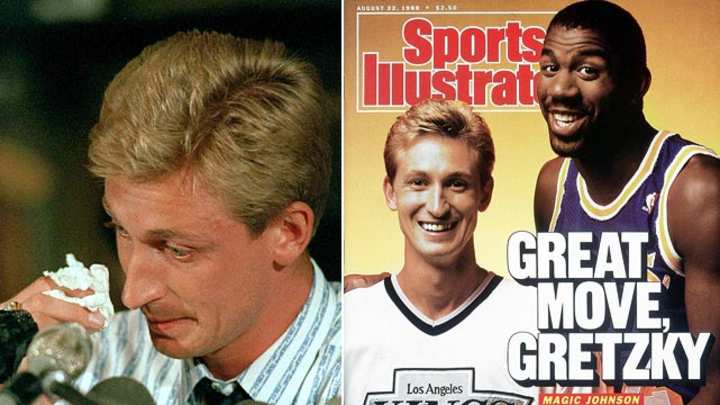
Superstars Traded In Their Prime
Wayne Gretzky

25 years ago, the Los Angeles Kings pulled off a transaction so monumental that it is known simply as "The Trade." On Aug. 9, 1988, the Kings landed the "The Great One" along with Mike Krushelnyski and Marty McSorley from the Edmonton Oilers in exchange for Jimmy Carson, Martin Gelinas, Los Angeles' first-round picks in the 1989, 1991 and 1993 Entry Drafts and cash. Gretzky made 10 more All-Star Games and won a Hart Trophy and three Art Ross Trophies after the trade. To mark the anniversary of the trade, we've compiled other amazing trades of stars in the prime of their careers.
Babe Ruth

In the trade that launched the Curse of the Bambino, Boston Red Sox owner Harry Frazee sold 24-year-old Babe Ruth to the New York Yankees for $125,000 and a $300,000 loan after the 1919 season. Ruth was just emerging as the greatest slugger the game had ever seen, setting the home run record with 29 big flies in 1919. He went on to lead the American League in home runs in all but two of the next 12 years as the Yankees won four World Series while the Red Sox ... didn't.
Julius Erving
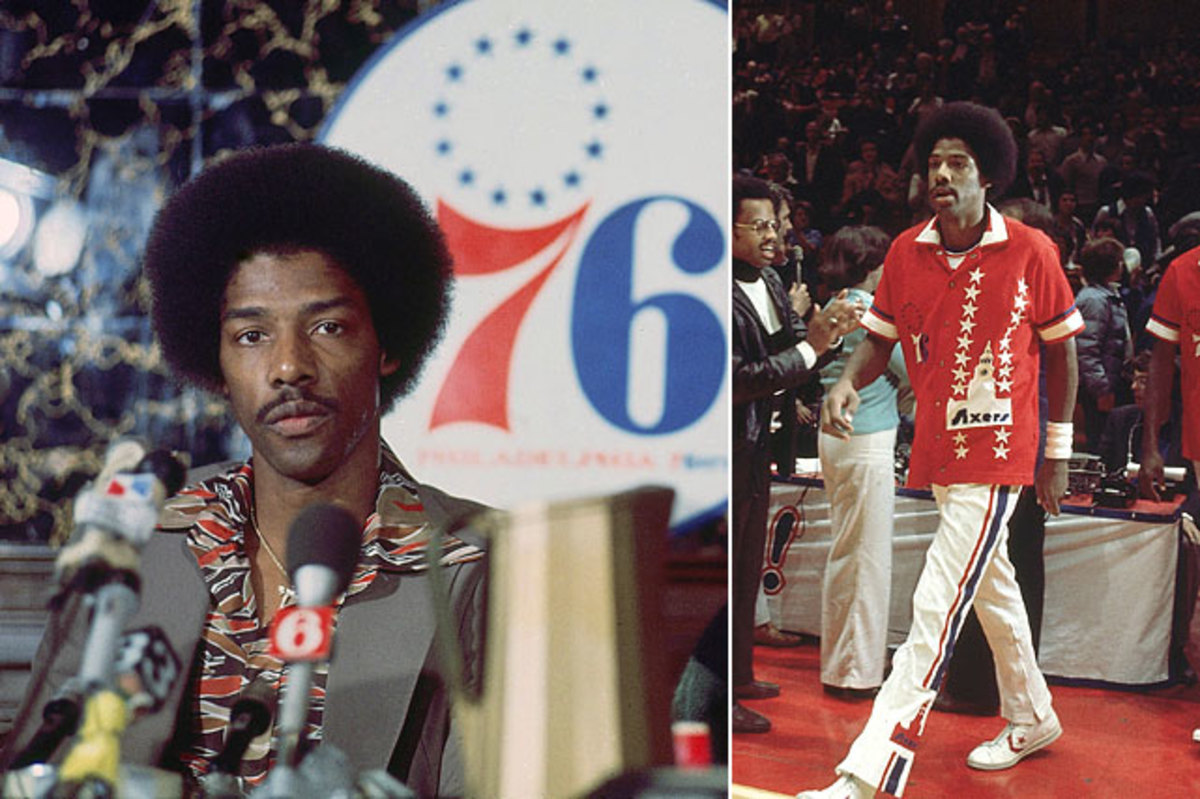
Officially the New York Nets traded Julius Erving to the Philadelphia 76ers for $3 million. In reality, the trade was for a berth in the NBA. After already paying fees to join the league, the Nets faced another fee from the New York Knicks for invading their territory. Strapped for cash, the Nets tried to offer Erving instead. When the Knicks declined, Nets owner Roy Boe found another suitor in the 76ers whose cash offer could help pay off the Knicks. Perhaps the Knicks regretted passing on Erving during the disappointing seasons of the late 1970s and mid-1980s.
Rogers Hornsby
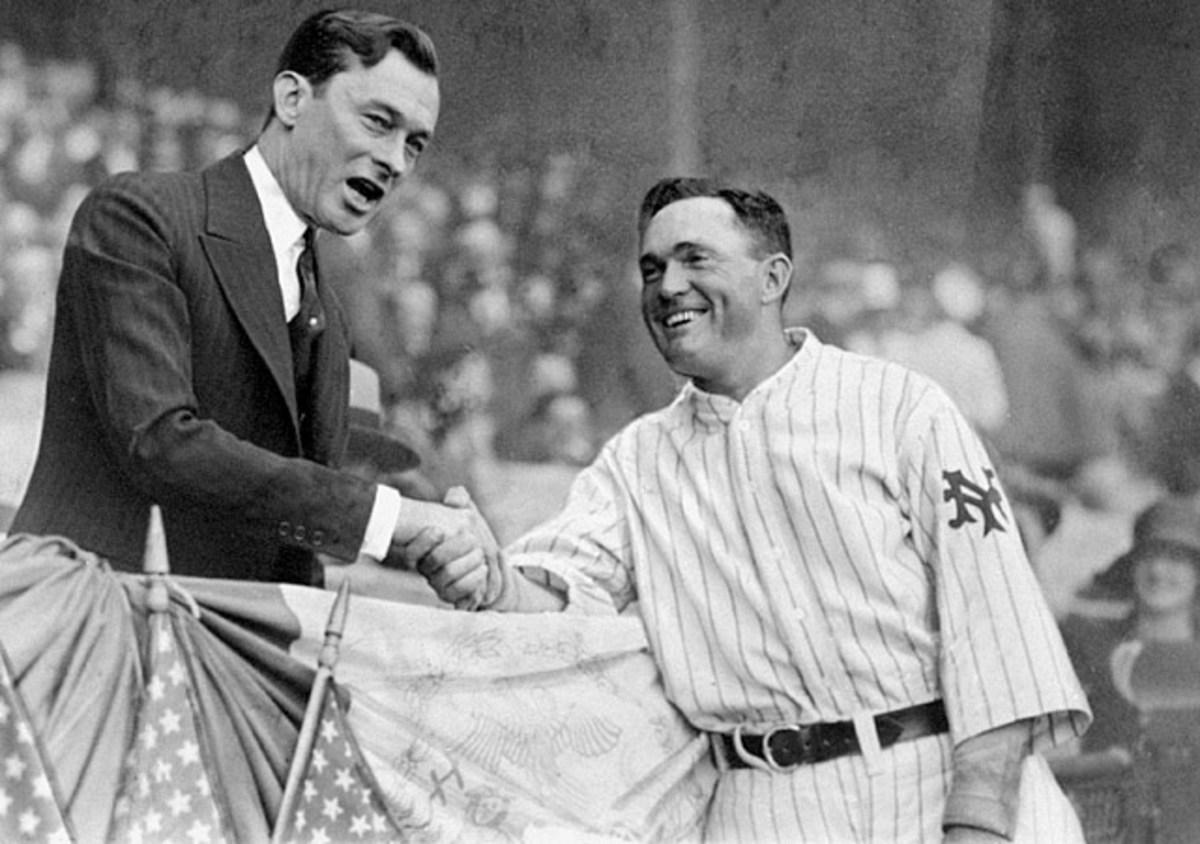
After helping the St. Louis Cardinals win their first World Series in 1926, second baseman Rogers Hornsby demanded a new contract worth $50,000 annually for three years. When Sam Breadon, the Cardinals owner, refused to give more than a one-year contract at that salary, he shipped his star player off to the New York Giants for Frankie Frisch and Jimmy Ring. Hornsby didn't last long in New York, spending just one season before he was traded again to the Boston Braves, who then sent him to the Chicago Cubs after a season. He won the 1929 MVP with the Cubs and finished his 23-year career with a .358 batting average. Frisch spent the rest of his career in St. Louis and won the MVP in 1931 as the Cardinals won another World Series.
Frank Robinson
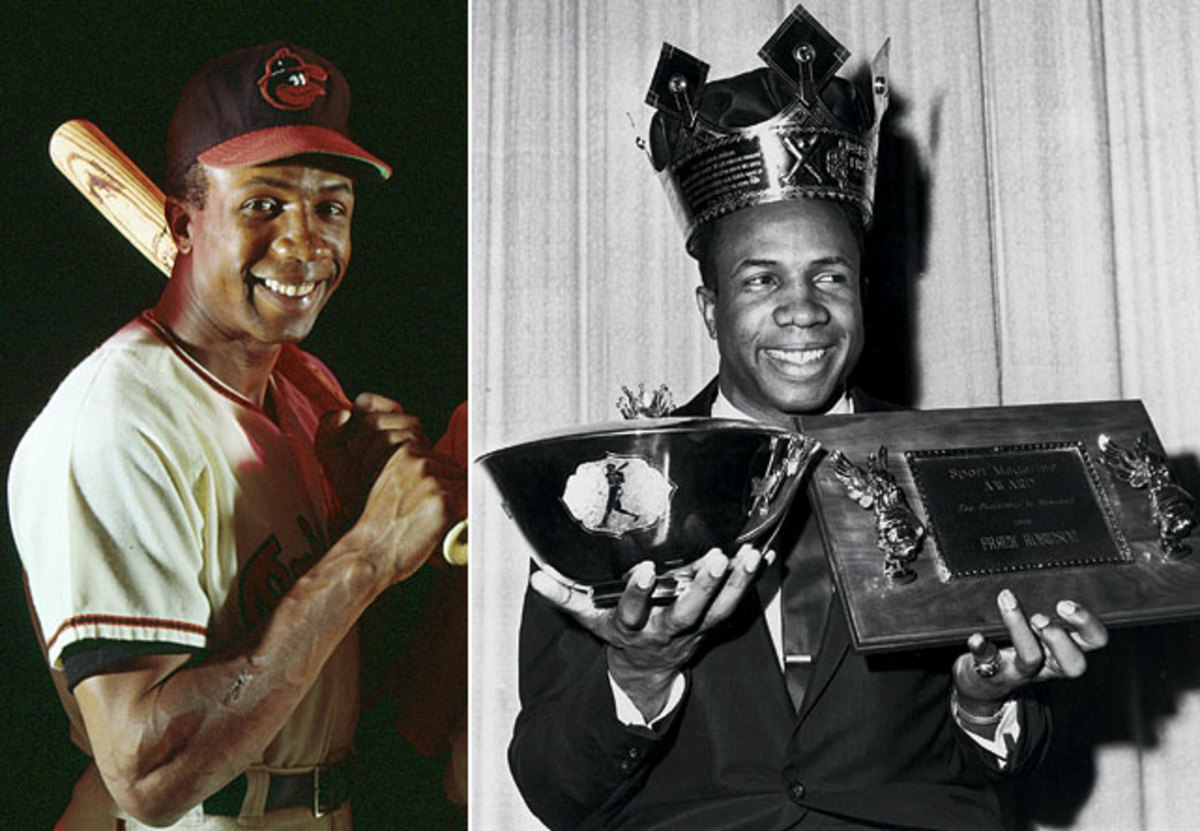
No trade perhaps better illustrates the perils of dealing a player in his prime than the Cincinnati Reds' trade of Frank Robinson to the Baltimore Orioles. Despite Reds owner Bill DeWitt's insistence that Robinson was "an old 30," the future Hall of Famer proved he was just hitting his stride when he won the MVP with a triple-crown season in 1966. None of the Reds' acquisitions in the trade went on to much with the franchise. Jack Baldschun went 1-5 with a 5.25 ERA over two seasons, Milt Pappas posted a pedestrian 30-29 record with a 4.04 ERA and Dick Simpson hit .246 over two seasons with more strikeouts (43) than hits (34).
Patrick Roy
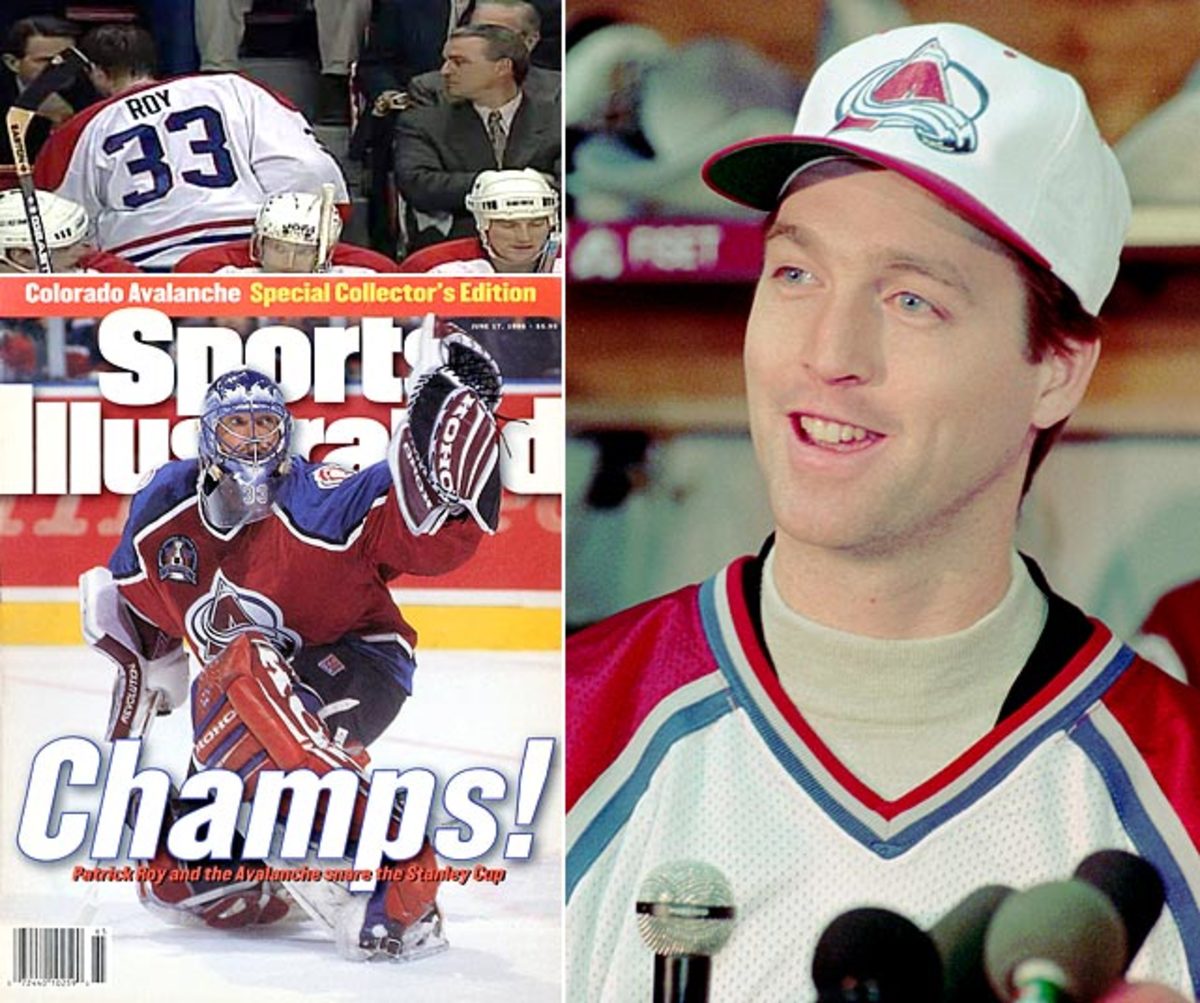
The French-Canadian version of Gretsky's "The Trade," Patrick Roy's deal to the Colorado Avalanche is known to Francophones as "Le Trade." Furious with new Montreal Canadiens coach Mario Tremblay for, among other issues, humiliating Roy by leaving him in to allow nine goals against the Detroit Red Wings, Roy demanded a trade. Montreal obliged, sending Roy and captain Mike Keane to the Avalanche for Andrei Kovalenko, Martin Rucinsky and Jocelyn Thibault on Dec. 6, 1995. Although Roy never won a Vezina Trophy with Colorado -- he won three in Montreal -- he added to his hardware with two Stanley Cup championships to match the two he won as a Canadien along with five more All-Star selections.
Jimmie Foxx

In an interaction of global economics and sport, Philadelphia A's owner Connie Mack was forced to sell Jimmie Foxx's contract in 1935 because the Great Depression left him unable to pay the slugger's salary. The Boston Red Sox snatched up the 28-year-old Foxx, sending George Savino, Gordon Rhodes and $150,000 to the Athletics. Foxx spent seven season in Boston, hitting .320 with 222 home runs, 788 RBI and a 1.034 OPS. He made the All-Star Game in every full season he spent with the Red Sox and won the 1938 MVP Award.
Kareem Abdul-Jabbar

Unhappy with his Midwest location, Kareem Abdul-Jabbar asked out of Milwaukee, getting his time in the sun when the Bucks sent the 28-year-old to the Los Angeles Lakers in 1975 along with Walt Wesley in exchange for Junior Bridgeman, Dave Meyers, Elmore Smith and Brian Winters. In Abdul-Jabbar's 14 season with the Lakers he averaged a double-double six times and scored 20 points per game or better in all but his final three seasons. The NBA's all-time leader in points won three MVPs and five championships in Los Angeles.
Wilt Chamberlain
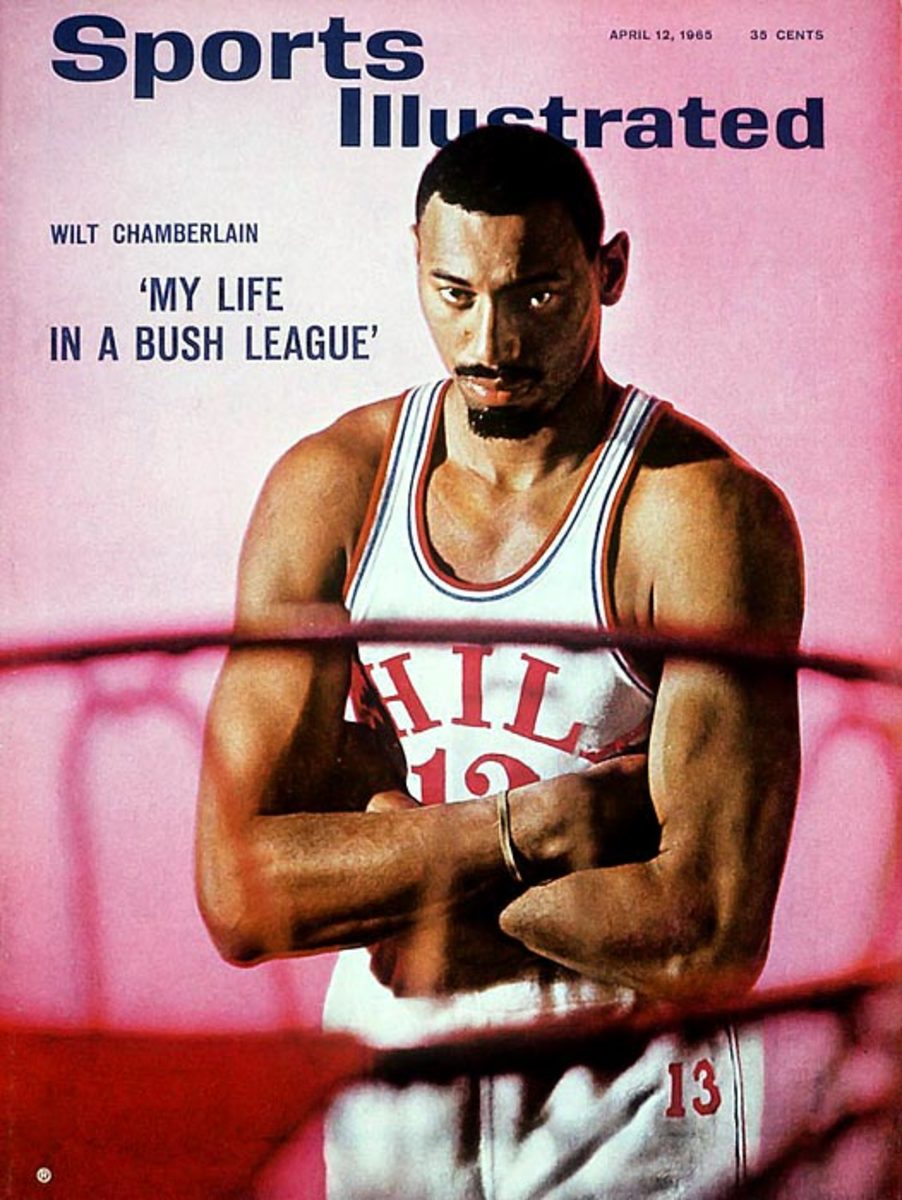
In financial peril and off to a poor start to the 1964-65 season, the San Francisco Warriors cashed in on the great Wilt Chamberlain, trading the 28-year-old to the Philadelphia 76ers for Connie Dierking, Paul Neumann, Lee Shaffer and $150,000 on Jan. 15, 1965. Chamberlain's already stellar career continued undeterred by the trade as he averaged 30.1 and 33.5 points per game in his first two seasons in Philadelphia, respectively, and made the All-Star Game during every season he spent with the 76ers.
Mike Piazza
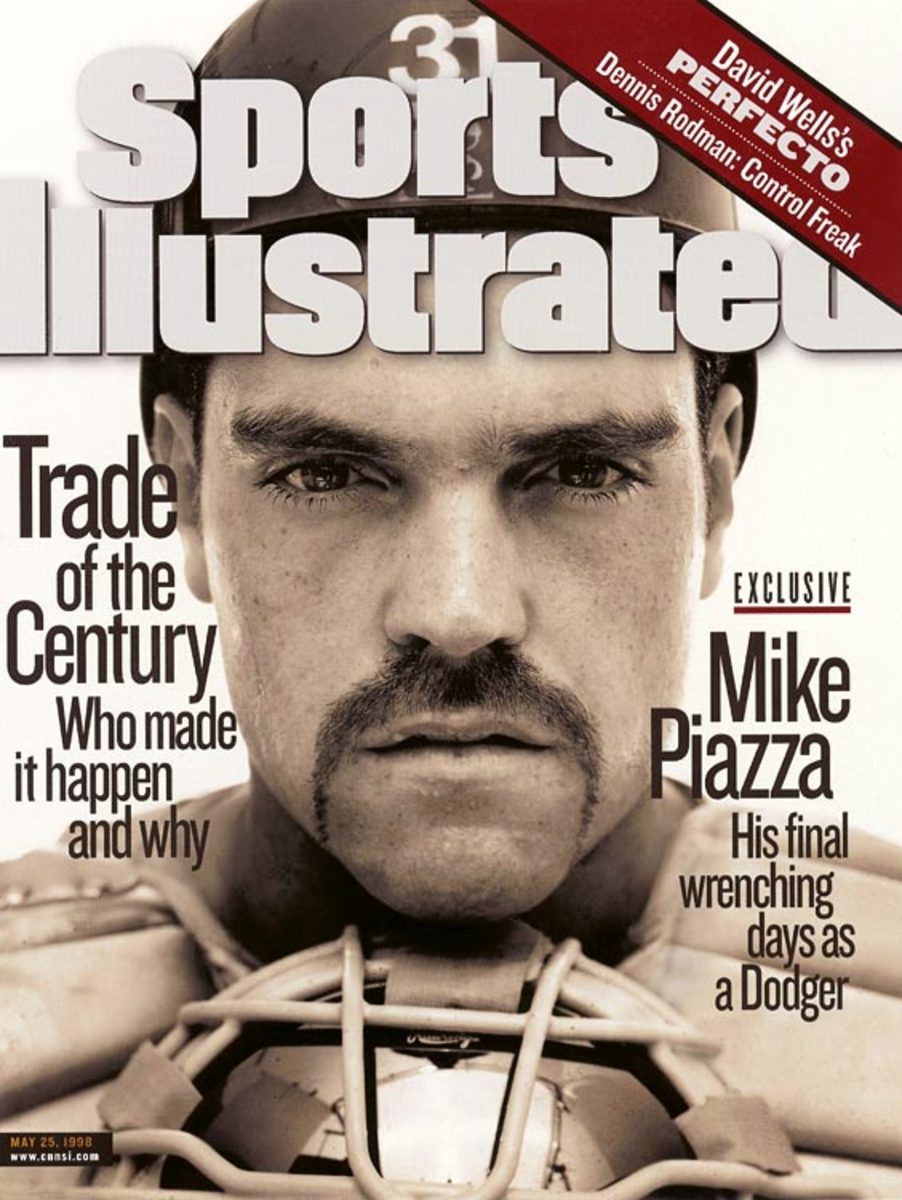
An All-Star in each of his first six full seasons in the majors, Mike Piazza was traded with Todd Zeile from the Los Angeles Dodgers to the Florida Marlins on May 14, 1998, for Manuel Barrios, Bobby Bonilla, Jim Eisenreich, Charles Johnson and Gary Sheffield. The power-hitting catcher didn't spend much time in South Beach, playing just five games for the Marlins before they dealt him to the New York Mets. Piazza hit .348/.417/.607 for New York that season and made the All-Star Game in six of the next seven seasons.
Ted Hendricks
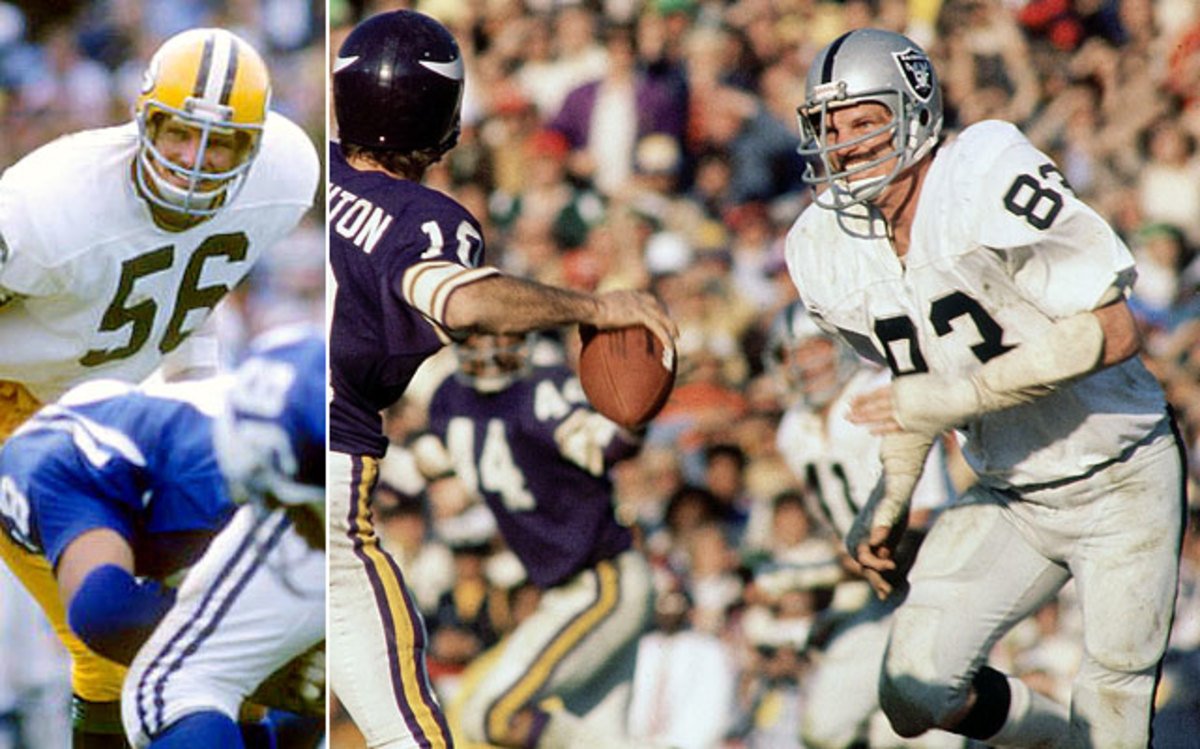
Following five successful years with the Baltimore Colts, including a Super Bowl champion season in 1970, Ted Hendricks moved to the Green Bay Packers in 1974 at age 27. Hendricks posted the best year of his career in Green Bay, intercepting five passes and blocking seven kicks. With his contract up, Al Davis and the Raiders sent two first-round draft picks to the Packers in exchange for Hendricks' rights. In nine seasons with the Raiders, Hendricks helped the franchise with three Super Bowls, the last one coming in his final year of professional football.
Ken Houston
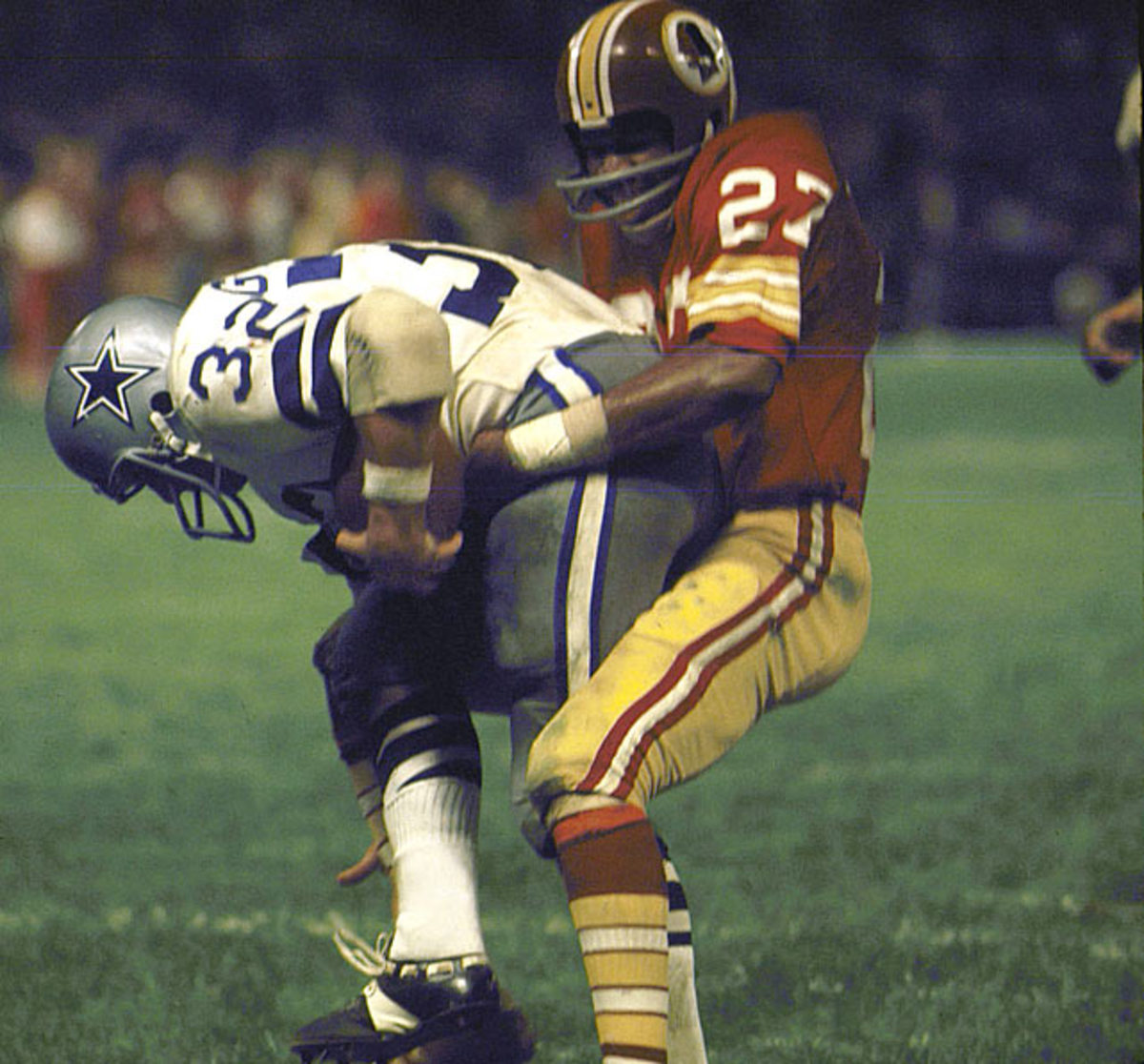
A dominant strong safety who had already made five Pro Bowls by the time he was 28, Ken Houston switched teams for the first time in his career when the Houston Oilers traded him to the Washington Redskins for Jim Snowden, Mack Alston, Clifton McNeil, Mike Fanucci and Jeff Severson. Houston's brilliance continued in Washington, where he made seven straight Pro Bowls.
Jaromir Jagr
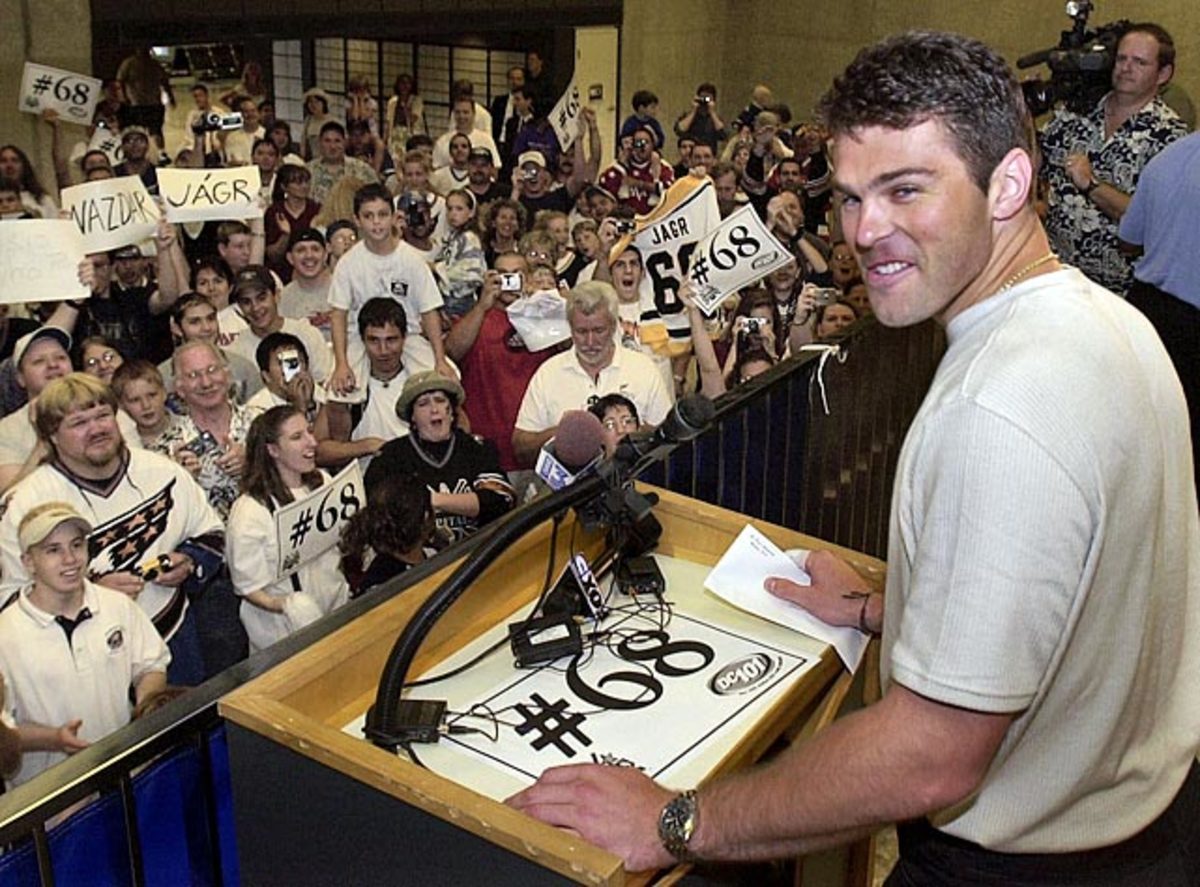
Although Jaromir Jagr has shown the longevity to still contribute in the NHL at 40, when he was in his prime at 29, the Pittsburgh Penguins sent him and Frantisek Kucera to the Washington Capitals for Kris Beech, Michal Sivek, Ross Lupaschuk and future considerations. After the Capitals signed Jagr to then the largest contract in NHL history -- $77 million over seven years -- his production plummeted from 121 points in his final season in Pittsburgh to 79 points in his debut campaign in Washington. Jagr never found his groove with the Capitals.
Charles Barkley

Frustrated with the Philadelphia 76ers' inability to make the postseason, Charles Barkley demanded a trade and got sent to the Phoenix Suns for Jeff Hornacek, Andrew Lang and Tim Perry after the 1991-92 season. The then-29-year-old picked up where he left off in the desert, extending his streak of consecutive All-Star selections to 11 years while claiming the MVP in his first season with the Suns. Although Phoenix made the postseason and reached the NBA Finals, Barkley was denied an NBA title, losing to Michael Jordan's Bulls in six games. He never got back to the Finals.
Reggie Jackson
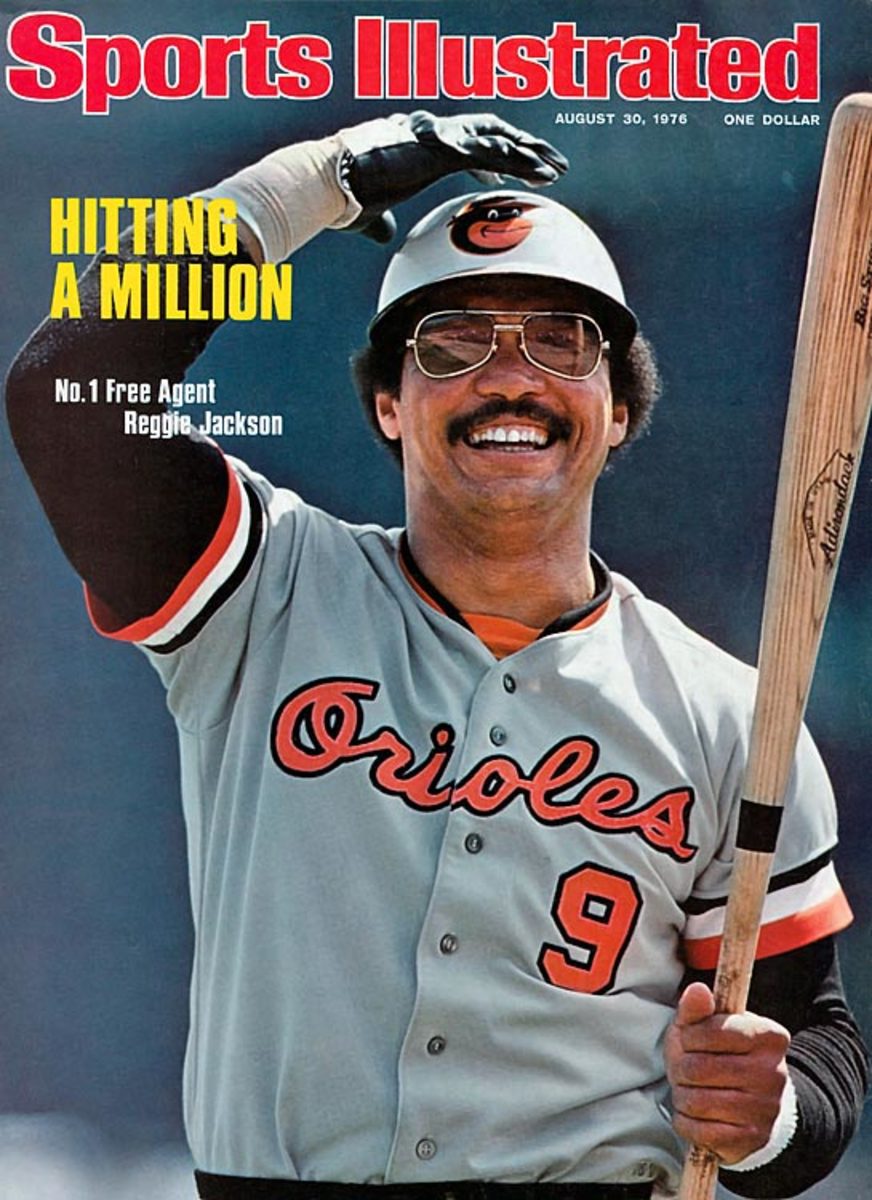
Even before Billy Bean, the Oakland Athletics weren't opposed to dealing players rather than give them a big contract. With the imposition of free agency approaching as Jackson was sure to command a high salary in the open market, owner Charlie O. Finley opted to cash in on his cantankerous star, trading him, Ken Holtzman and minor leaguer Bill VanBommell to the Baltimore Orioles for Don Baylor, Mike Torrez and Paul Mitchell. Jackson led the American League in slugging at .502, but when he hit free agency after the 1976 season, he headed up to the New York Yankees.
Vince Carter
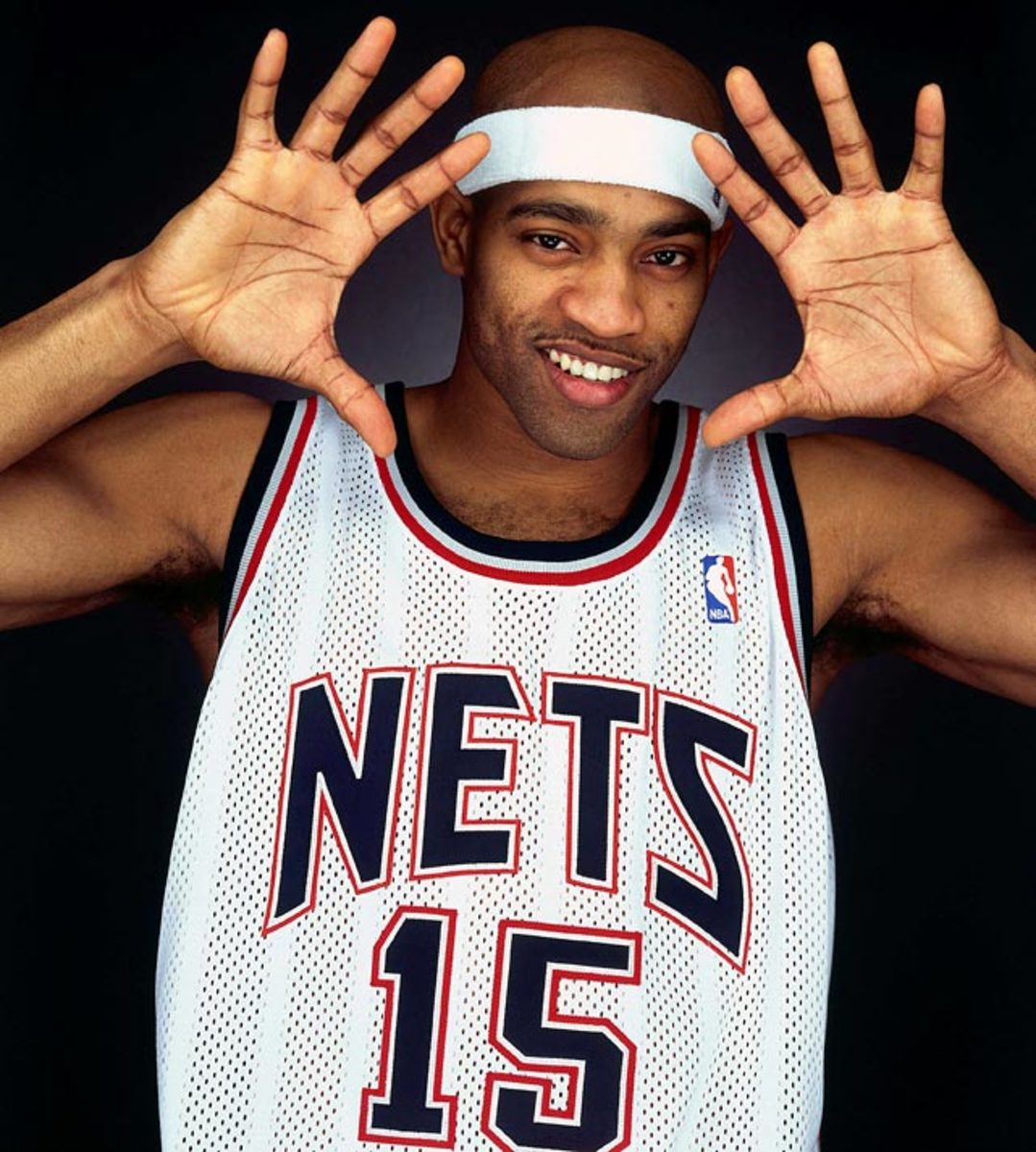
When the Toronto Raptors hired Rob Babcock as general manager, it signaled the beginning of the end of Vince Carter's tenure in Canada. Carter did not gel with Babcock's priorities of establishing his philosophy even at the expense of winning right away and headed south of the border to the New Jersey Nets at 27 years old. The Raptors received Alonzo Mourning, Aaron Williams, Eric Williams, and first-round picks in the 2005 and 2006 NBA Draft in exchange. Carter's minutes shot up from 30.4 per game to 38.9 after the deal, and his production spiked as well. He averaged 27.5 points per game in 57 games in New Jersey, nearly 12 points better than his average in the early part of the season in Toronto. Carter made the All-Star team each of his first three years in New Jersey, all years in which the Nets also made the playoffs.
Carmelo Anthony
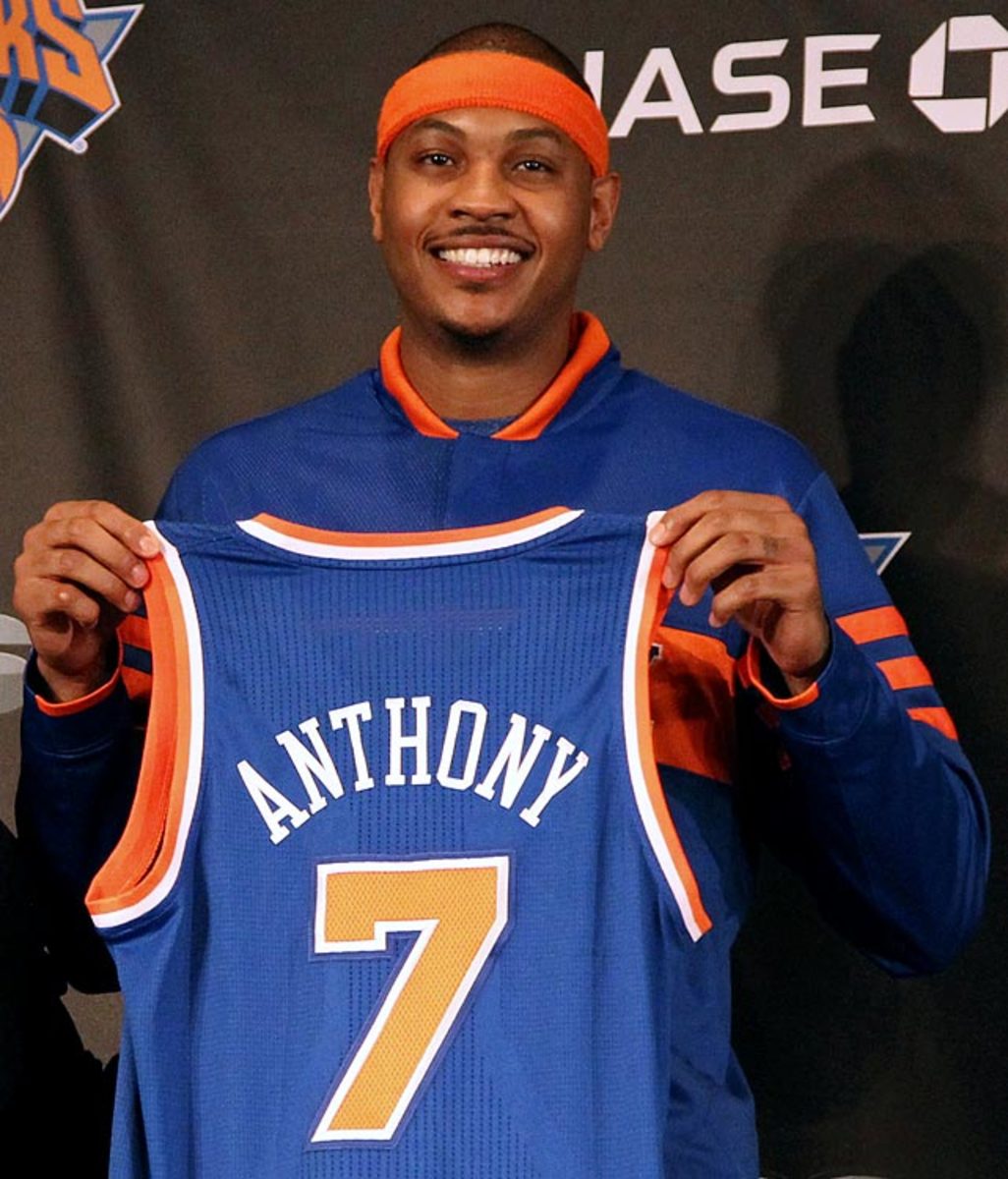
The third overall pick in the 2003 NBA Draft, Carmelo Anthony finally left the Denver Nuggets in 2011 as part of a massive three-team trade involving 13 players, four draft picks and cash. Anthony, along with Renaldo Balkman, Chauncey Billups, Anthony Carter and Shelden Williams, moved to the Knicks, Kosta Koufos and Corey Brewer left the Minnesota Timberwolves for the Nuggets and the Knicks, respectively. The Knicks sent four players, including Raymond Felton and Danilo Gallinari, cash and three draft picks to the Nuggets, and Eddy Curry, Anthony Randolph and cash to the Timberwolves. The Knicks hoped the pairing of Anthony and Amar'e Stoudemire would take them far into the playoffs, but injuries to Stoudemire and Billups hastened a first-round exit.
Eric Dickerson
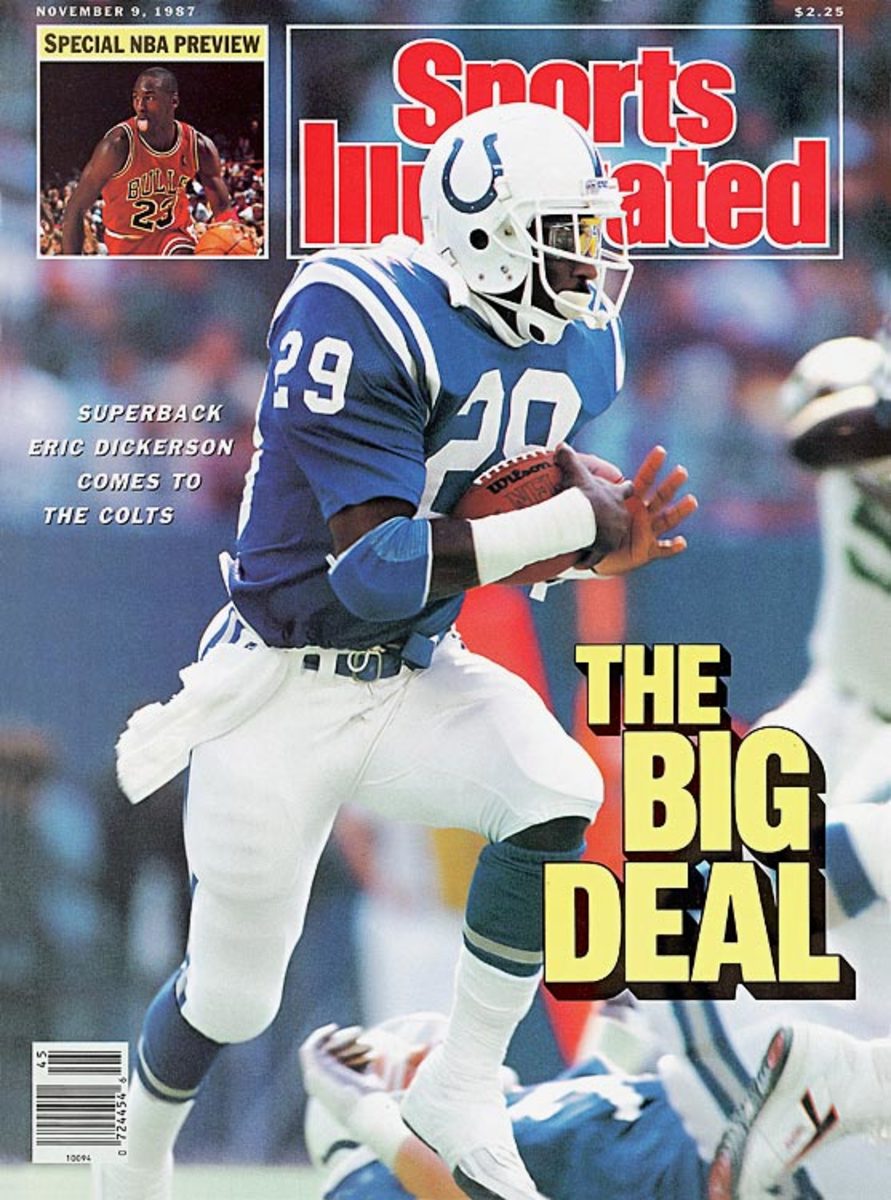
After two years of contract disputes, the Los Angeles Rams parted ways with running back Eric Dickerson, trading him during the strike-shortened 1987 season in a three-team deal with the Indianapolis Colts and the Buffalo Bills. Dickerson's first two years in Indianapolis went well as he continued to average more than 100 yards rushing per game. However, the wear of seven straight seasons with 283 or more carries finally caught up to Dickerson at 29 as his rushing average dropped precipitously each year until his retirement after the 1993 season.
Alex Rodriguez
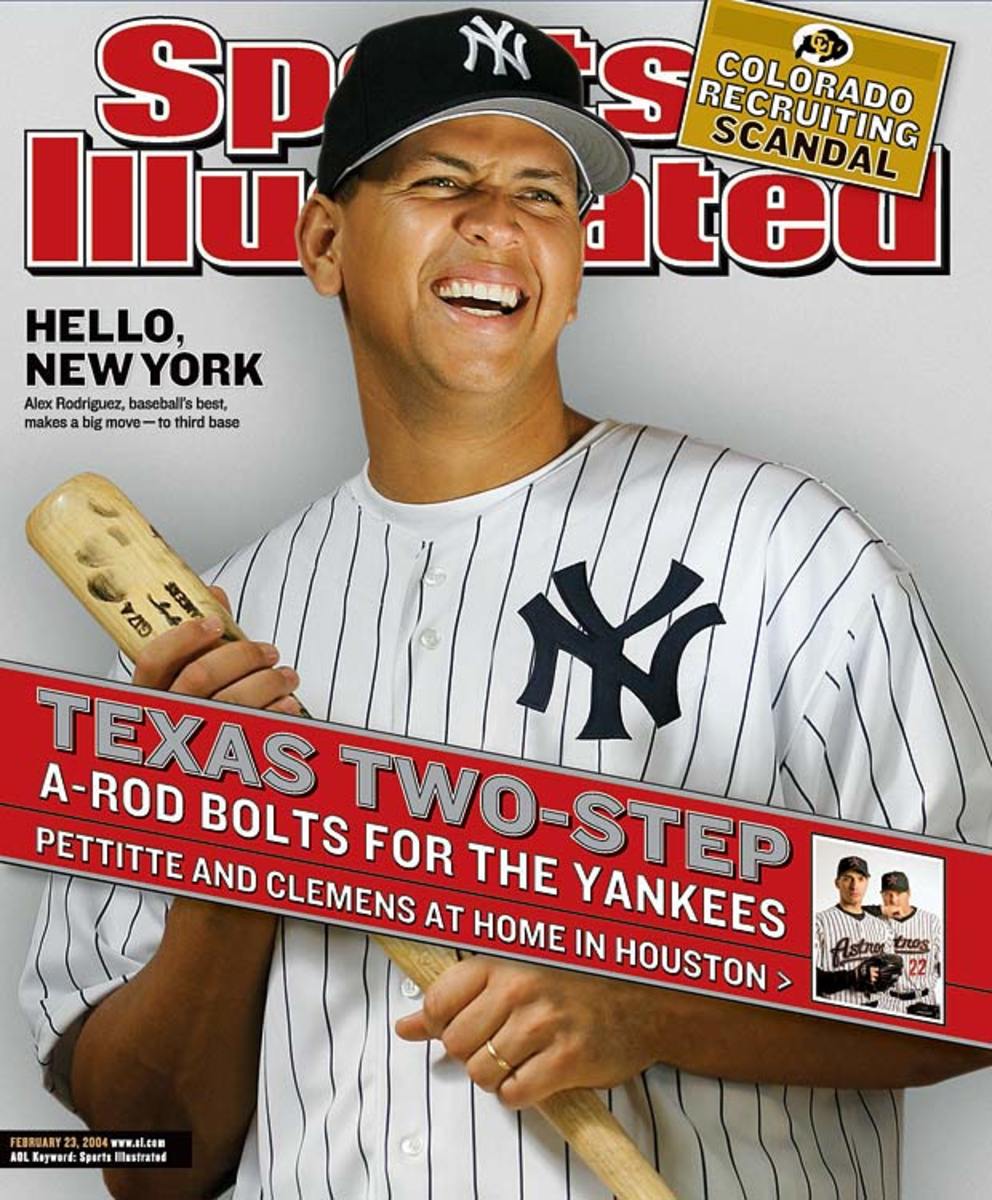
Alex Rodriguez struck it rich in 2001 with his 10-year, $252-million deal -- the most lucrative contract at the time by $63 million -- to play for the Rangers. The problem was the expensive investment from the Rangers left the franchise with little money to build around Rodriguez. Despite an MVP season from A-Rod in 2003, Texas still won just 71 games. The Rangers found a way to move Rodriguez by dealing him to one of the few teams that could afford his salary -- with $67 million of help from the Rangers. The Yankees took in Rodriguez, sending Alfonso Soriano and a player to be named later (Joaquin Arias) to Texas.
Paul Coffey
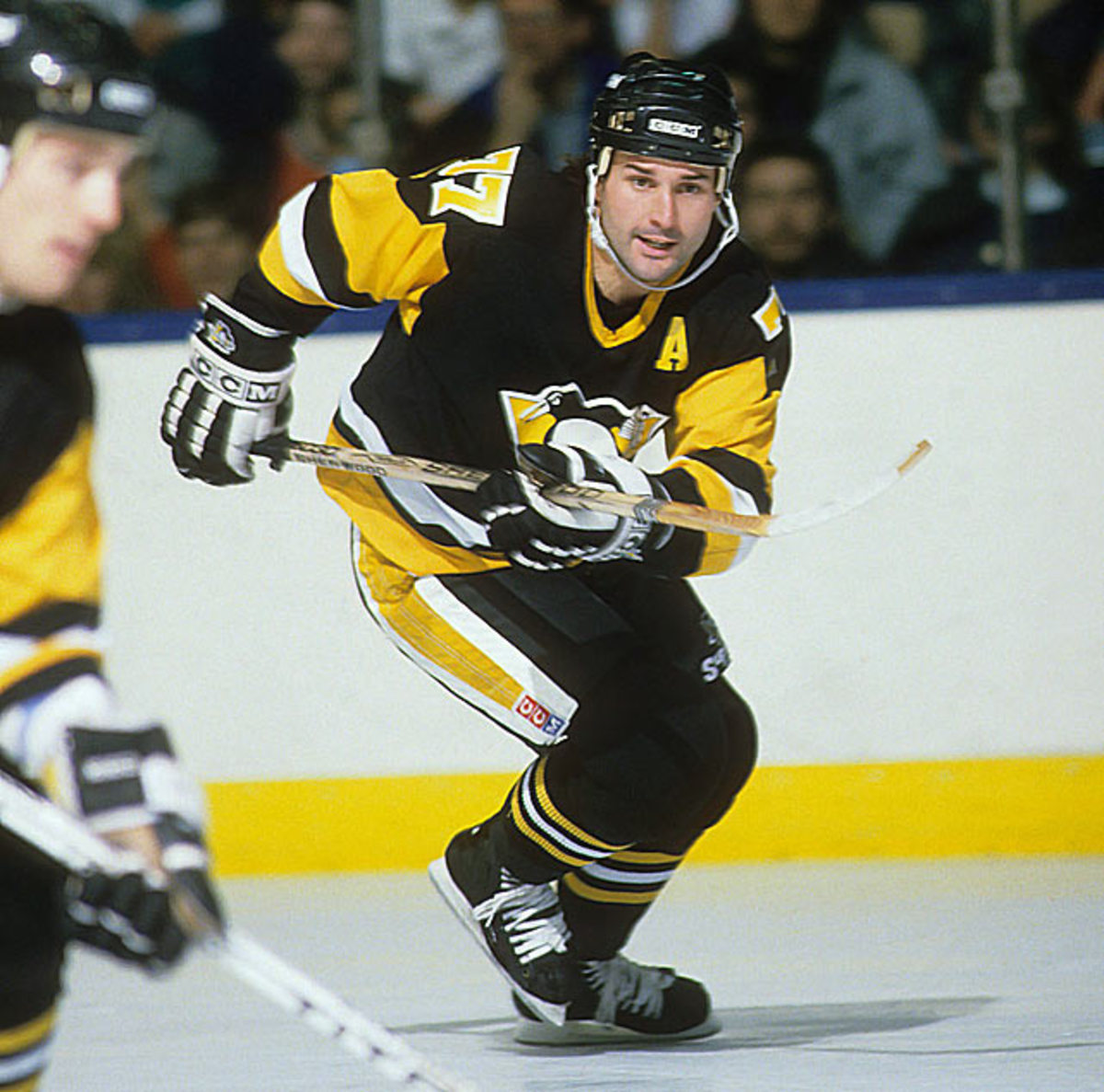
An incredible scorer as a defenseman, Paul Coffey established his virtuosity in Edmonton, winning two Norris Memorial Trophies and breaking Bobby Orr's record for goals by a defenseman in a season with 48 in 1985-86. The Oilers achieved similar success with Coffey, winning three Stanley Cups in a four-year period. Just before the 1987-88 season, the Oilers dealt the 26-year-old Coffey to the Pittsburgh Penguins along with Dave Hunter and Wayne Van Drop for Craig Simpson, Dave Hannan, Moe Mantha and Chris Joseph. Coffey continued to produce in Pittsburgh, racking up 93 points or more in three of his four complete seasons with the Penguins. Pittsburgh also won a Stanley Cup, the last cup of Coffey's career, in 1991. His playing days continued through the 2000-01 season before he retired at 39, second in career goals, assists and points by a defenseman to Ray Bourque, who also retired that year.
Jason Kidd

After an All-Star season in 2000-01 in which Jason Kidd averaged 16.9 points, 6.4 rebounds and a league-best 9.8 assists, the Phoenix Suns traded the star point guard and Chris Dudley to the New Jersey Nets for Stephon Marbury, Johnny Newman and Soumaila Samake. Kidd immediately boosted the Nets, getting a team that went 26-56 in 2000-01 to back-to-back NBA Finals appearances. The Suns deteriorated until they found another stellar point guard in Steve Nash.
Champ Bailey
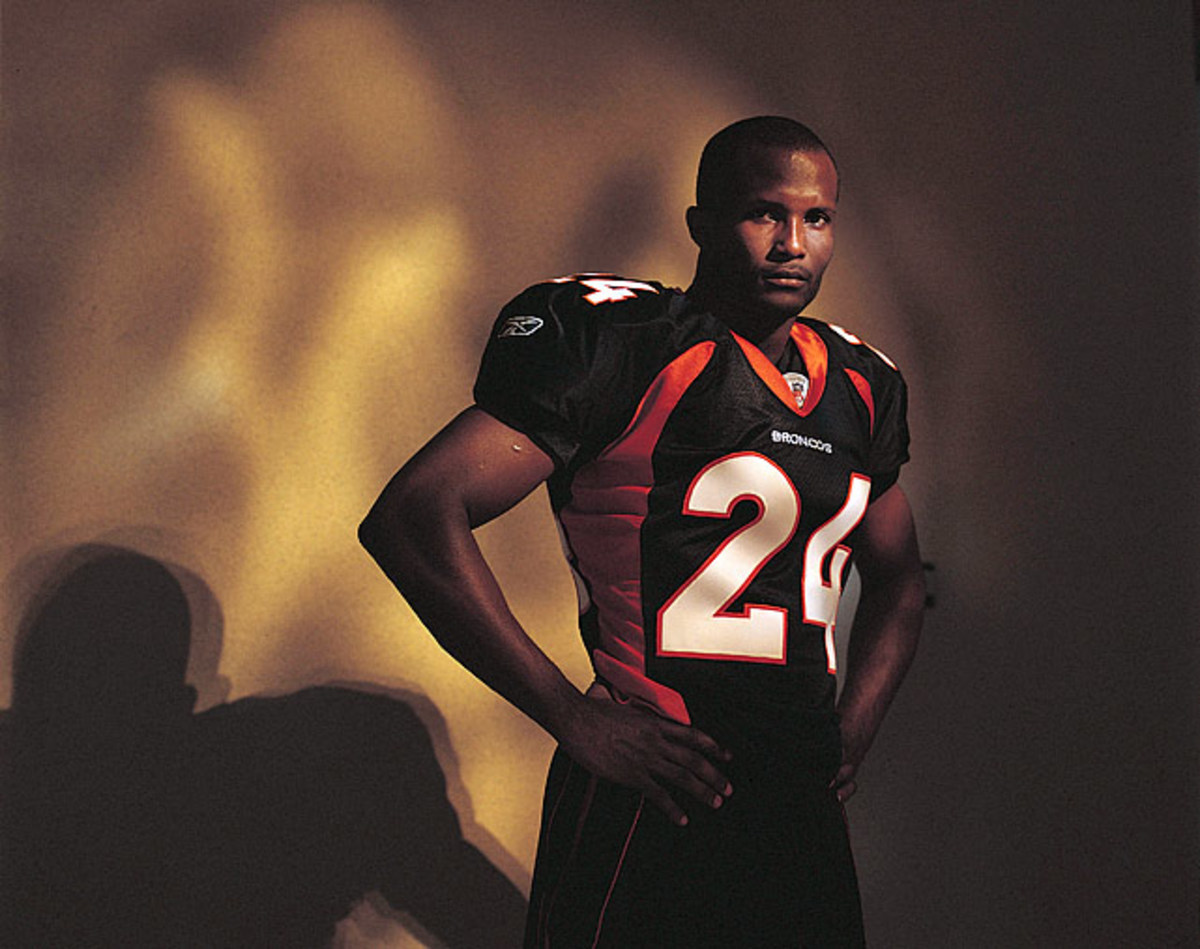
Champ Bailey was already a league-renown cornerback by the time he was 25 and had made the Pro Bowl every season of his career except for his rookie campaign. When Bailey's rookie contract expired, he threatened to boycott training camp if the Washington Redskins used the franchise tag on him, causing the Redskins to explore trading him. The Redskins and Bailey found a satisfactory trade, moving him and a second-round pick to the Denver Broncos in exchange for Clinton Portis. Bailey signed a seven-year, $63-million contract with the Broncos and made the Pro Bowl during each of those seven seasons plus two more. Although hampered by injuries, Portis posted huge numbers for the Redskins including four seasons with more than 1,500 yards from scrimmage.
